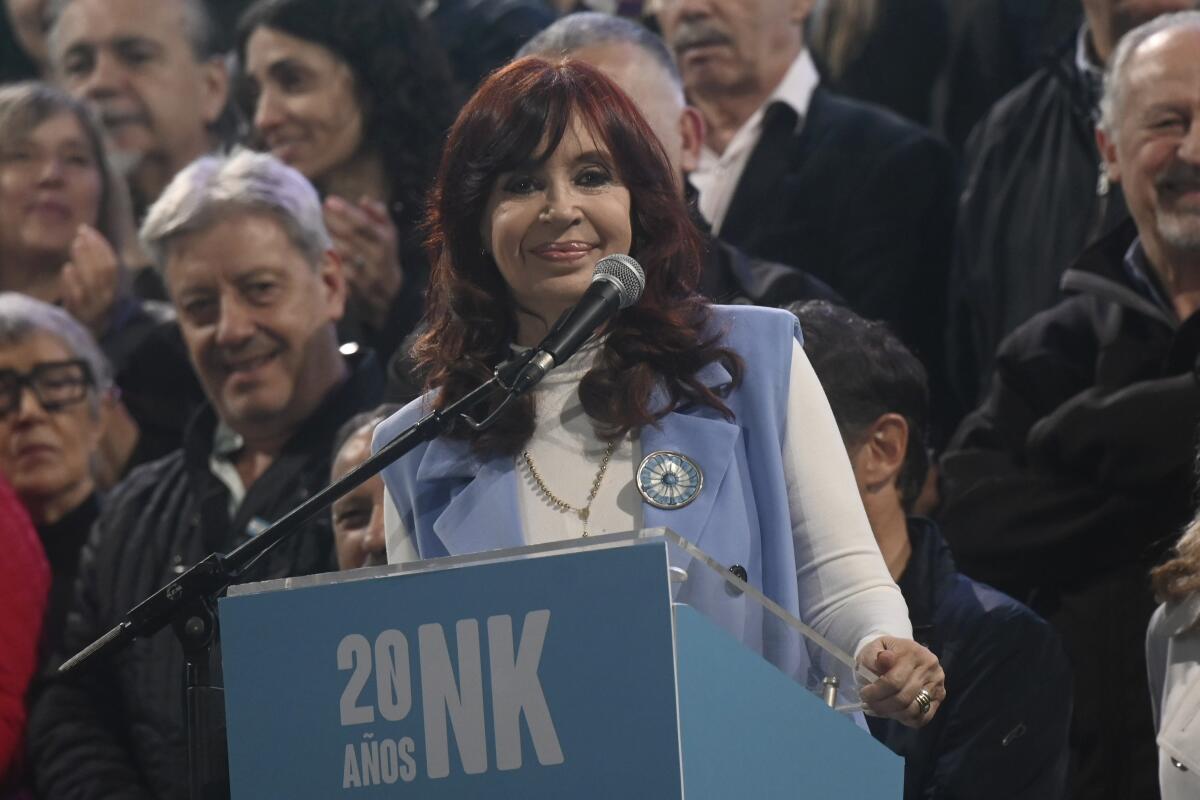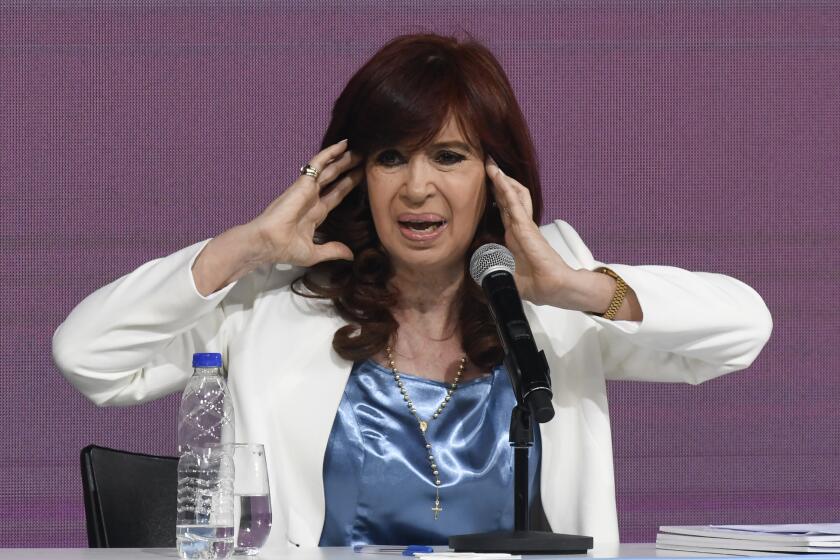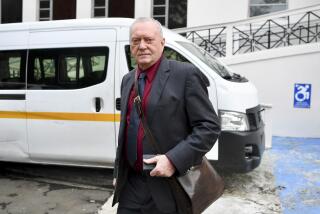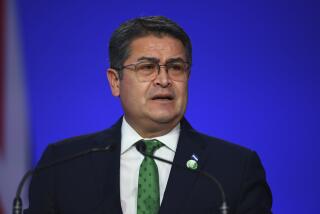Judge dismisses corruption case against Argentina’s vice president

BUENOS AIRES — A judge in Argentina on Monday dismissed a long-running money laundering case against Vice President Cristina Fernández de Kirchner, after prosecutors and state agencies said there was no evidence she was involved in a crime.
Federal Judge Sebastian Casanello ruled that Fernández de Kirchner be removed from what had come to be known as the “K money” case because it involved alleged kickbacks and money laundering on behalf of the Kirchner family by businessman Lázaro Báez.
Prosecutor Guillermo Marijuan said late last month there was no evidence that Fernández de Kirchner, a former president (2007-15), was involved in the corruption for which Báez has been sentenced to 10 years in prison.
Báez was a close associate of both Fernández de Kirchner and her late husband and predecessor, Nestor Kirchner, who was president from 2003 to 2007. The case began with allegations that Báez was paid for public works contracts that were never completed and that he then laundered that money on behalf of Kirchner and his wife.
Prosecutors say that, as president, current Argentine Vice President Cristina Fernández helped steer public works contracts to a friend and ally.
Argentina’s tax agency and anti-money laundering agency also agreed that Fernández de Kirchner, who remains politically powerful, should be removed from the case dating back to 2013.
“Without an accusation, there is no possibility of a criminal process,” Casanello wrote in his three-page resolution.
Marijuan had said that while it is clear that there was a “close and direct personal relationship” between Báez and the vice president, that does not mean she was involved in the money laundering of an estimated $65 million that led to Báez’s conviction.
Báez was the owner of Austral Construcciones, one of the main companies favored with public works contracts during the tenure of Fernández de Kirchner’s administration as well as that of her late husband.
In an interview late last month, Marijuan said that he didn’t find any “proof that links Cristina Fernández to this case.”
In December of last year, another court sentenced Fernández to six years in prison in a separate case for fraudulent administration, which included a lifetime ban on holding public office. That conviction can still be appealed and reviewed by higher courts, a process that could take years, and she remains immune from arrest in the meantime.
More to Read
Sign up for Essential California
The most important California stories and recommendations in your inbox every morning.
You may occasionally receive promotional content from the Los Angeles Times.










